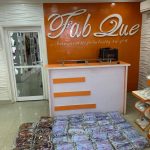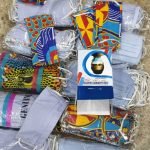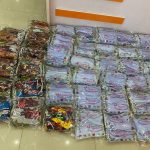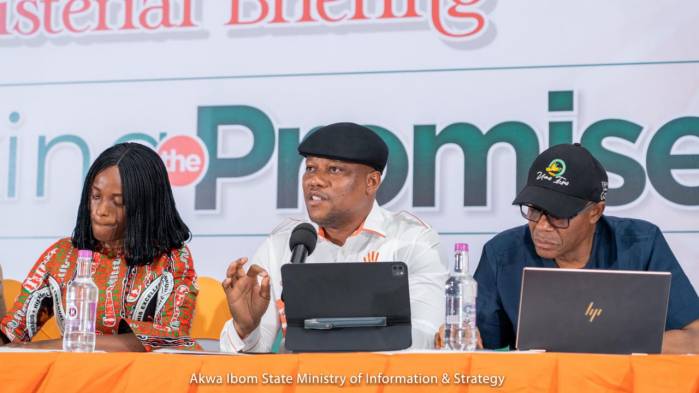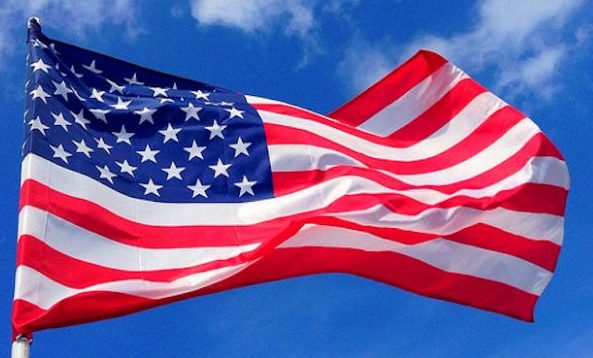When necessity is the mother of invention
As the global scarcity of personal protective equipment (PPE) deepens amidst the spiraling cases of COVID-19 infection, respite is coming to Nigeria, the NEXT EDITION can authoritatively report today.
This is because garment manufacturers in Aba, Abia State in South-East Nigeria, are rolling out some badly needed PPE supplies.
Currently, scores of manufacturers in the commercial town are churning out thousands of facemasks, laboratory coats and full-body covers needed by healthcare workers on the frontline of the COVID-19 battle.
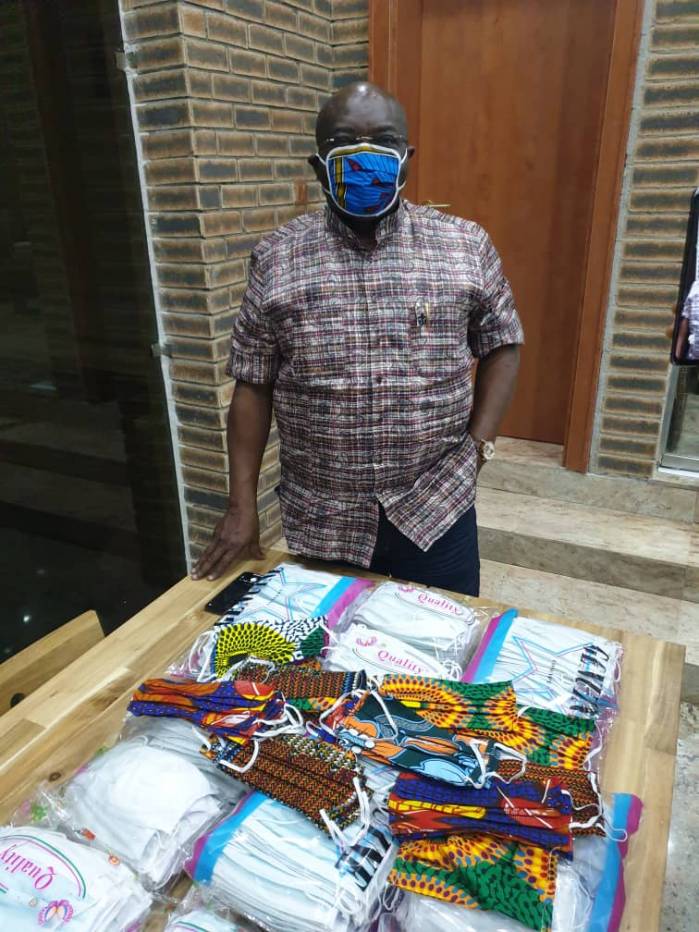
The Aba intervention comes just as the World Health Organisation (WHO), urges industry and governments to increase manufacturing by 40 percent to meet rising global demand.
Healthcare workers globally rely on personal protective equipment to protect themselves and their patients from being infected and infecting others.
WHO warned that severe and mounting disruption to the global supply of PPE – caused by rising demand, panic buying, hoarding and misuse – is putting lives at risk from coronavirus and other infectious diseases.
It said shortages of gloves, medical masks, respirators, goggles, face shields, gowns, and aprons are leaving doctors, nurses and other frontline medical workers dangerously-ill equipped to care for COVID-19 patients.
“Without secure supply chains, the risk to healthcare workers around the world is real. Industry and governments must act quickly to boost supply, ease export restrictions and put measures in place to stop speculation and hoarding.
“We can’t stop COVID-19 without protecting health workers first,” said Tedros Ghebreyesus, WHO Director-General during a press conference in Geneva.
Since the outbreak of COVID-19, Mr. Ghebreyesus said prices of PPE have surged.
Shylock merchants of Nigeria
As if they were praying for COVID-19 outbreak, big and small shops in many parts of Nigeria increased the prices of essential drugs, hand sanitizers, facemasks, medical gloves and other medical accessories by over one thousand per cent.
In Abuja, Nigeria’s capital for instance, facemasks which sold for between N50 – N100 before the outbreak of the pandemic were sold for between N1, 000 to N2, 000 in major pharmacies and shops.
A medium-size bottle of hand sanitizer, which hitherto sold for N500, was raised to N3, 000.
The situation got so bad the Federal Competition and Consumer Protection Commission (FCCPC) sued four Abuja-based supermarkets for inflating the cost of hand sanitizers, disinfectants, hand-wash liquids and face masks.
The affected stores include: H-Medix Pharmacy & Stores Limited, Prince Ebeano Supermarket Limited, Bakan Gizo Pharmacy & Stores Nigeria Limited as well as Faxx Stores & Trading Limited.
Hearing on the case would likely commence after the lockdown announced by the Federal Government is lifted and the courts are opened.
How Aba garment makers are changing the game
While Nigerians lamented the scarcity of PPE and the activities of shylock traders, some garment manufacturers in Aba were working tirelessly to bridge the supply gap.
Currently, many hospitals and healthcare institutions and companies are getting PPE supplies from the commercial city, said Sam Hart, the Director-General of Abia State Marketing and Quality Management Agency.
Mr. Hart said the state government has provided a seed grant to some garment manufacturers so as to stimulate mass production.
One of such production lines is Fab Que Fashion Limited, located at No.170 Faulks Road, Aba.
The garment factory is owned by Queen Duruibe, a graduate of the Federal University of Technology (FUTO), Owerri.
Mrs. Duruibe, who holds a Second Class Upper degree in Petroleum Engineering, is a former engineer with Shell Petroleum Development Corporation (SPDC).
She, however, abandoned a lucrative SPDC career to pursue her passion for fashion design.
Mr. Duruibe is working day and night to produce some of the personal protective gears needed to combat COVID-19 pandemic in Nigeria.
“I had a passion for making clothes while growing up. I used to make clothes for my mother and also mend some of our clothes that were torn,” Mrs. Duruibe said.
“But shortly after my national service, I got a job with SPDC in Port Harcourt, Rivers State.
“I was already married at that time and so it was difficult for me to combine going to work in Port Harcourt from Aba and keeping my family.”
Before she ventured into PPE production, Mrs. Duruibe said her company specialised in the production of male shirts and trousers as well as female tops and skirts.
“We make everything wearable,” she said.
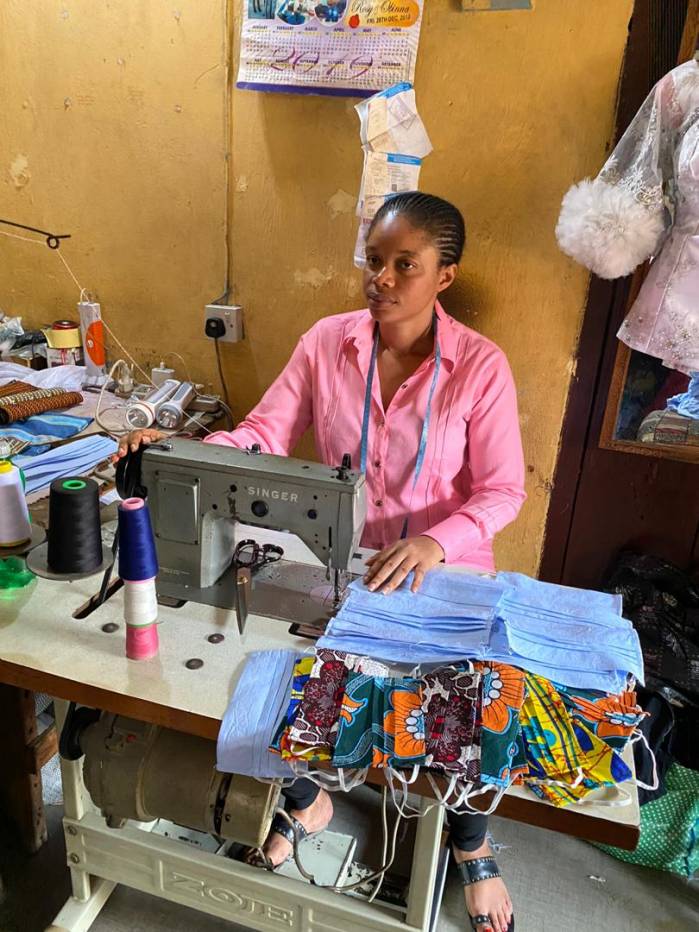
Asked why she abandoned a well-paying job with SPDC to run a tailoring shop, she said, “My family comes first above everything. I had children at the time and I needed to give them attention.
“Fashion has always been my passion and when you are doing something you love, you put in a hundred and ten per cent of yourself in it.”
With 12 staff working overtime, Mrs. Duruibe produces an average of 2,000 facemasks on a daily basis and hopes to scale up the number to meet the increasing demand from clients within and outside the Abia State.
“I started producing facemasks not long from now but I can tell you that we have produced over 6,000 pieces of facemasks in less than three days,” she said.
“We delivered 2,000 pieces to a hospital in Port Harcourt on Saturday and I will be delivering 3,000 to the state government tomorrow.
“We are still working and I have only slept for a few hours in the last three days.”
Apart from facemasks, Fab Que Fashion Limited produces laboratory coats and aprons.
One of the company’s clientele, Nazareth Hospital in Aba recently took delivery of 1,000 pieces of facemasks.
Mrs. Duruibe said she could do more if the power situation in Aba improves, adding “Most of the time, we run on a generator and you know the cost of diesel and the implication for business in the country.”
Another garment manufacturer working hard to provide badly needed protective gears as the country battles COVID-19 pandemic is Uche Ogbonna.
Mr. Ogbonna, a graduate of Computer Science from Abia State Polytechnic had hung his certificates in 2001 and ventured into garment production.
His expansive company sits on Nos. 23/24/25 Howard Crescent with a branch office at Constitution Crescent all in Aba.
“I have been into fashion right from when I was in secondary school. Back then, I was making clothes and selling them to my classmates,” he recalled.
“I sewed school uniforms for my schoolmates while I was in SS1. When I was done with secondary school, I went and lived with my aunt in Lagos and didn’t have the time again to pursue my passion for fashion.
“But when I got admission into Akannu Ibiam Federal Polytechnic, I started making clothes again. I would come to Aba to meet my friend who had a shop during the weekend and make some clothes.
On Sundays, I returned to Afikpo and sell the clothes during the weekdays. I did my ND in Akanu Ibiam and my HND in Abia Poly.
“During the mandatory one-year industrial training, I relocated fully to Aba and joined my friend in his shop and produced clothes and sold to clients outside within and outside Abia State”
Mr. Ogbonna said he spent two extra years doing the business before he got admission to do his higher diploma at Abia Poly.
“Immediately after I completed my HND, I didn’t serve but instead opened my own shop and started with two tailors. That was in 2002,” he told our correspondent.
Today, Mr. Ogbonna has a total of 101 staff including administrative personnel working in his flourishing garment business and his monthly wage bill runs into millions of naira.
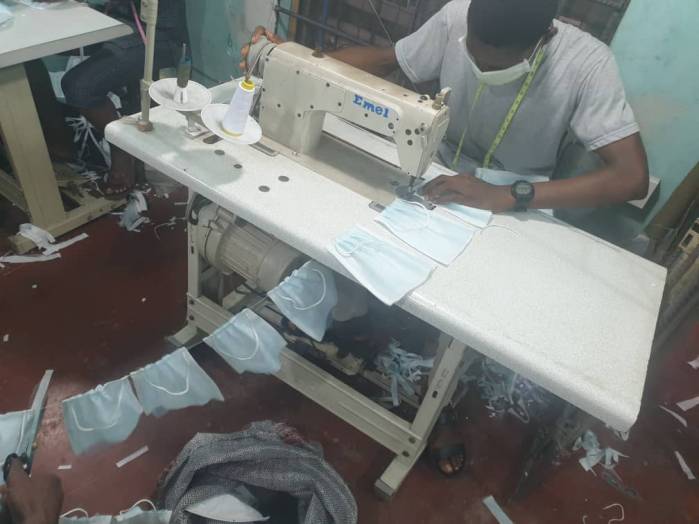
Asked how he realised the need to produce PPE, Mr. Ogbonna said the outbreak of COVID-19 pandemic and the concomitant scarcity brought the idea to him.
“When I made enquiries, I learnt one can use a quality fabric that can allow air to pass through to a reasonable extent; to produce a facemask,” he said.
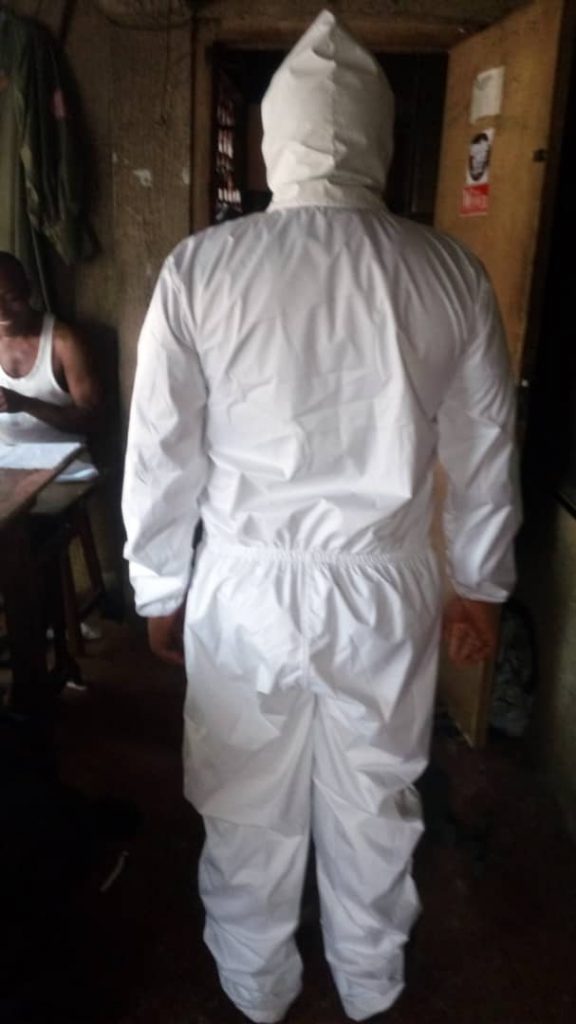
“We started by producing facemasks for my staff and me and people who saw us wear them demanded we produce for them. That was when we made 200 pieces and shared to people.”
But Mr. Ogbonna said he didn’t consider what his company produced good enough.
“I picked a mask that was brought in from China and studied the fabrics used; sourced a similar materials within the country and produced something that is as good or even better than what is produced in China.”
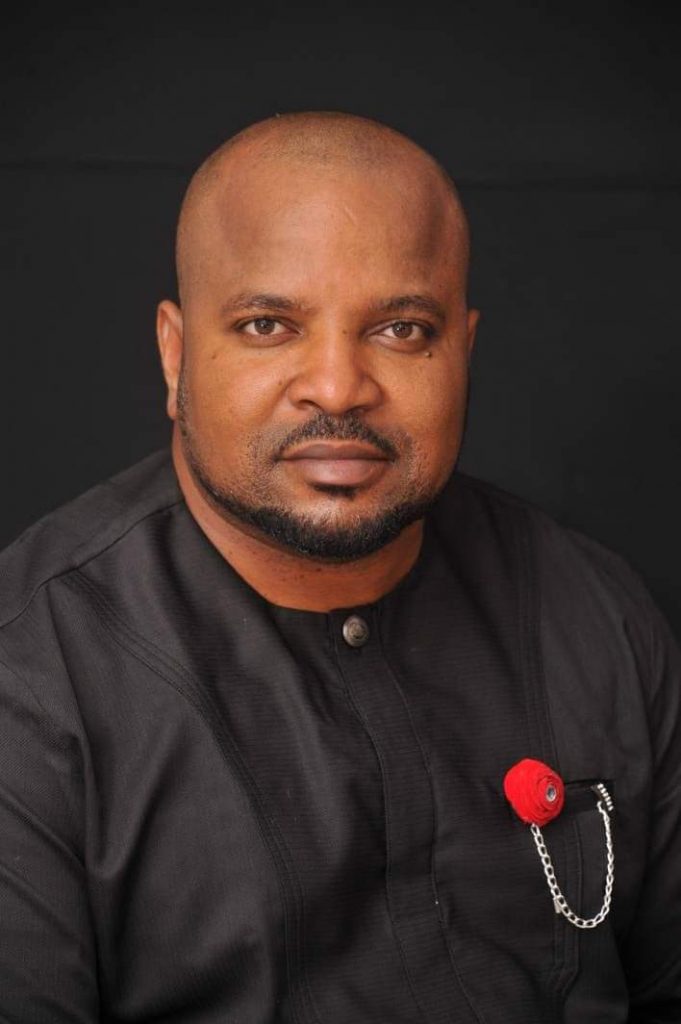
The Director-General, Abia State Marketing and Quality Management Agency, Sam Hart said dozens of manufacturers in Aba are involved in the production of facemasks and other medical consumables.
According to him, when the country confirmed COVID-19 index case and facemasks became scarce due to increased demand, there was a clamour for the local industry to step-up and plug that gap.
To stimulate local production, he said the Governor, Okezie Ikpeazu, provided seed funding to about 10 manufacturers and challenged them to produce facemasks and other consumables.
Mr. Hart said the results have been very impressive adding that Aba is ready to feed the country’s need for PPE including facemasks, lab coats, aprons, laboratory boots, etc.
READ ALSO: Coronavirus: Govt Can’t Regulate Sale Of Face Masks, Sanitizers – Health Minister
Some of the materials used for the production of the protective gears are sourced locally while others are imported from China and other countries.
To ensure quality control, Mr. Hart said the state’s Inter-ministerial Committee on COVID-19 Response has since invited medical experts to evaluate the PPE produced in Aba.
“The medical experts we invited to look at the personal protective gears certified them fit for medical use,” Mr. Hart said.
“However, there are variants made with Ankara and other fabrics which are not ideal for clinical use but which can be used by the general public.
“We currently have the capacity for at least 50,000 facemasks in a day. The 10 pilot centres can roll out 5,000 masks in a day but note that there are at least 50,000 tailoring shops in Aba and they can all get in on this with varying capacities.
“If I were to estimate, I would say that we have installed capacity for at least 500,000 facemasks per day subject to raw materials availability.”
Both Mr. Hart and Mr. Ogbonna said just as COVID-19 hit China and the concomitant scarcity of PPE, Chinese merchants flooded Aba and bought over medical merchandise from local traders.
“They basically went to places they had supplied medical merchandise and bought them back at a premium including very old stock,” Mr. Hart said.
“This is what is responsible for the scarcity of basic medical essentials in the market and the astronomical cost of the ones available.
“Since the Chinese are not shipping to us, our people are now sourcing things locally and in the process, we are building our local capacity.
Mr. Hart said manufacturers in Aba have produced quality waterproof personal protective gears, lab coats and hospital clothes.
“We face the challenge of foreign consumption that makes people believe that foreign products are better.
“Our people are doing very well in Aba and we have the capacity to improve on identified lapses if we are given the chance.
“We are asking our people and the government to trust us. A lot of money is being sent abroad to order for things that can be easily made in Aba.”
He argued that a part of the funds used in importing things that can be produced locally can be used to scale up local production and improve capacity.
“Whatever can be produced anywhere can be replicated in Aba. Aba has a spirit and a soul and if properly ignited, Aba has potentials for boundless economic growth and productivity,” Mr. Hart said.
Also speaking, Abia State Health Commissioner, Jonathan Osuji, said the personal protective gears produced in Aba are of very high quality.


